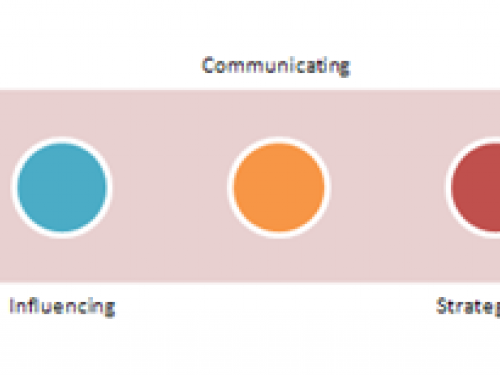
The Role of Leadership in Project Management
A project in any business organization is a vital and critical undertaking that require concentration and full dedication from all participants because the success or failure of any business project determines the direction that the particular firm takes in the current and future business environments.
INTRODUCTION
Project management is a crucial task that any individual can be tasked with especially in the contemporary technological business environment where changes are inevitable. The overall success of any project is attributed mainly to the leaders in charge of the project as they have all the authority to control and monitor every process of the project alongside making critical project decisions. Similarly, when a project fails to accomplish its key objectives and goals, the leaders or managers in charge are to blame. The blame is usually attributed to their failure or incapacity of using the powers bestowed to them in making the project a success. It is important to note that any project that a business undertakes aims at achieving specific objectives that will enhance particular business process for increased profitability, performance, high productivity, and overall success of the particular business in its endeavors. Therefore, project management is a crucial role that leaders or any individuals tasked with the role of leadership in any project should take seriously and apply all effective leadership skills to ensure that the project is a success.
THE KEY ROLES OF A LEADER IN A PROJECT
In any project, there should be an individual who is tasked with the role of leading the selected team to achieve the objectives of the particular project. Such individuals are referred to as project leaders or managers. Their key roles or duties include;
- Decision Making: A project leader is tasked with making critical decisions regarding the project (Chititoor 2012). Any process that has to be conducted or an action that has to be taken in any particular angle of the project has to have the approval of the project leader as the decision maker of the project.
- Planning: Project leader is accountable for the entire project plan. The costs, schedules, and process plans are their responsibilities.
- Management: Management of the entire project is the duty of the project leaders, they are responsible for selecting teams, allocating duties, authorizing payments, among other managerial responsibilities.
The three key roles of project leaders give leadership a critical role in project management (Chititoor 2012). Therefore, there are traits or styles that leaders should employ in their leadership capacities that determine the success or failure of the particular project.
THE ROLE OF LEADERSHIP IN PROJECT MANAGEMENT
Project management is a duty that require the individuals tasked with it to employ effective leadership skills and traits to ensure overall success of the project in benefitting both the project teams and the particular business organizations (“Effective Project Leadership: Project Manager Skills And Competencies” 2018). The following are essential traits and leadership styles that ensure effective, successful, and reliable project management.
TEAM PLAYER, TRANSFORMATIONAL AND TEAM BUILDING TRAITS
A project is an undertaking that cannot be accomplished by an individual. Therefore, there has to be a project team that consist of individuals drawn from different departments who differ in characteristic, behavior, and ideological perspectives. Regardless of the project team’s composition, the key objective of the project has to be achieved. Therefore, as a project leader team player skills and traits are mandatory and necessary. Being a team player means that the leader should not apply authoritative approach but a team building and transformational leadership style (Kissi, Dainty and Tuuli 2013). The style ensures that the leader acts as a project team member and participates in all processes regarding the tea while motivating each individual to play their specific role to ensure the overall success of the project. The traits from leaders guarantee effective project management that result to the success of the project alongside benefitting both the project team and the particular organization. However, below are some qualities the project leader should possess:
- Flexibility:Changes during project progression are inevitable an attribute related to rapid changes in market requirements, technological developments, cost variations, and target population preference alteration. Therefore, for successful project management, project leaders should be flexible in nature. To ensure flexibility, leaders should ensure during planning phase they leave a room for effective adoption of any necessary and beneficial changes that would guarantee project success.
- Effective Communication Skills: Communication is a vital process in any project. Therefore, effective leaders should ensure they apply effective communication skills and strategies that will ensure effective flow of information within the project team. Reliable communication channels should be developed by project leaders to ensure understanding and accountability of each project team member in their specific roles or duties (Chititoor 2012). Effective communication ensures success of the project in achieving the main goals and objectives.
LEADERSHIP ARROW
The following diagram illustrates a summary of traits, styles, and overall desires that a leader should have in ensuring effective project management.
Figure 1

Source:Importance Of Leadership For Project Success By Radhika Chittoor July 6, 2012
CONCLUSION
Project management is a demanding task that requires effective leadership styles and traits for overall success of the particular project. Team building, flexibility, communication, and effective strategizing abilities are mandatory for effective project leadership (Maambo 2013). Therefore, it is clear that leaders play a primary and key role in project management because their approach determines the overall success or failure of any particular project.
Author: Asma Talal Hamdan
BIBLIOGRAPHY
Krahn, Jennifer, Hartment, Francis “Effective Project Leadership: Project Manager Skills And Competencies”. 2018. Pmi.Org.
Anantatmula, Vittal S. 2010. “Project Manager Leadership Role In Improving Project Performance”. Engineering Management Journal 22 (1): 13-22. doi:10.1080/10429247.2010.11431849.
Chititoor, Radhika. 2012. “Importance Of Leadership For Project Success”. Project Management.Com. https://project-management.com/importance-of-leadership-for-project-success/.
Kissi, John, Andrew Dainty, and Martin Tuuli. 2013. “Examining The Role Of Transformational Leadership Of Portfolio Managers In Project Performance”. International Journal Of Project Management 31 (4): 485-497. doi:10.1016/j.ijproman.2012.09.004.
Maambo, Regina Muzamai. 2013. “Project Management Leadership”. SSRN Electronic Journal. doi:10.2139/ssrn.2419996.



